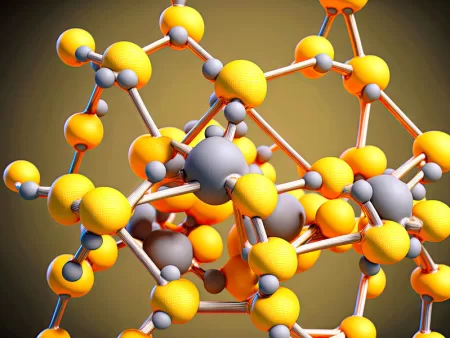
As a dedicated fitness trainer with years of experience, I’ve delved deep into the world of nutrition and its impact on fitness goals. Among various nutrients, amino acids, the building blocks of proteins, play a pivotal role, especially in weight loss. This comprehensive guide will explore the multifaceted roles of amino acids in shedding pounds, based on both scientific insights and personal experiences from my fitness journey.
Understanding Amino Acids
What Are Amino Acids? Amino acids are organic compounds that combine to form proteins. Think of them as the letters that make up the words (proteins) in our body’s biological processes. Broadly classified into essential and non-essential types, these compounds are indispensable for various bodily functions, from building muscle tissue to creating neurotransmitters.
- Essential Amino Acids: These cannot be produced by our body and must be obtained from the diet. Examples include leucine, isoleucine, and valine.
- Non-Essential Amino Acids: Although important, these can be synthesized by our body. Examples include alanine, asparagine, and glutamine.
The Science Behind Amino Acids and Proteins Proteins, made up of amino acids, are more than just muscle builders. They’re involved in almost every process within our bodies. Understanding their role helps in comprehending how amino acids impact weight loss and overall health.
- Protein Synthesis: This is the process of building proteins from amino acids, essential for muscle growth and repair.
- Enzyme Production: Many enzymes are proteins that speed up chemical reactions in the body, including those in metabolism.
- Hormone Regulation: Some hormones, which are crucial in regulating bodily functions, are proteins.
The Impact of Amino Acids on Weight Loss
Amino Acids: The Weight Loss Warriors In the realm of weight management, amino acids are less about bulk and more about efficiency. They contribute to weight loss through several mechanisms:
-
Muscle Maintenance and Growth: More muscle mass translates to a higher resting metabolic rate. Since muscle tissue burns more calories than fat, even when you’re not exercising, maintaining muscle mass is crucial in weight loss.
-
Fat Oxidation: Certain amino acids, like leucine, play a role in the fat-burning process of the body. They encourage the use of fat as an energy source, which is key in reducing body fat percentage.
-
Appetite Regulation: Amino acids can influence the feeling of fullness or satiety, which helps in controlling calorie intake.
My Observations as a Trainer Throughout my career, I’ve seen clients who focus on a balanced intake of amino acids achieve more sustainable and effective weight loss. This isn’t just about taking supplements; it’s about a holistic approach to diet that includes a healthy balance of these essential nutrients.
The Role of Amino Acids in Muscle Recovery
Muscle Recovery: Essential for Weight Loss Often overlooked in weight loss plans, muscle recovery is vital. It’s not just about building muscle but allowing it to repair and strengthen, particularly after intense workouts.
Why BCAAs Matter Branched-Chain Amino Acids, or BCAAs, are crucial here. They include leucine, isoleucine, and valine, and have several roles:
- Reducing Muscle Soreness: BCAAs can decrease muscle damage, leading to less soreness post-exercise.
- Accelerating Recovery: By stimulating protein synthesis, BCAAs help in faster recovery of muscle tissue.
- Improving Exercise Performance: With better recovery, you can maintain a consistent workout regime, essential for weight loss.
Boosting Metabolism with Amino Acids
Metabolism and Amino Acids: A Synergistic Relationship Metabolism – the chemical processes that occur within a living organism to maintain life – is a critical factor in weight loss. A faster metabolism burns more calories, aiding in weight reduction. Amino acids contribute significantly to this metabolic process.
- Arginine: Known for its role in improving blood flow, arginine also stimulates the release of growth hormone, which plays a part in metabolic regulation.
- Glutamine: Often used as a supplement in fitness circles, glutamine can aid in increasing the metabolic rate, thus helping in burning more calories.
Personal Insights on Metabolism Enhancement In my training experience, clients who increased their intake of these amino acids, often through protein-rich diets or supplements, reported not just improved weight loss, but also better energy levels and workout performance.
Sources of Amino Acids
Choosing the Right Sources for Amino Acids While supplements are widely available, I always emphasize starting with natural food sources. Let’s explore both:
Natural Sources:
- Animal Proteins: Chicken, fish, beef, and dairy are excellent sources. They provide complete proteins, meaning they contain all essential amino acids.
- Plant-Based Proteins: For vegetarians and vegans, sources like quinoa, beans, lentils, and nuts are crucial. Combining different plant-based proteins can ensure a complete amino acid profile.
Supplements:
- BCAA Supplements: Popular among athletes, these can be useful for muscle recovery and endurance.
- Protein Powders: Whey, casein, and plant-based powders are convenient sources of amino acids.
- Specialized Amino Acid Supplements: Targeted supplements like L-arginine or L-glutamine are available for specific needs.
Integrating Amino Acids into Your Diet
Dietary Strategies for Effective Weight Loss Incorporating amino acids into your diet for weight loss involves more than just eating protein-rich foods. It’s about creating a balanced and sustainable eating plan. Here are some strategies:
- Diversify Your Protein Sources: Combine animal and plant sources to ensure a comprehensive amino acid intake.
- Mindful Meal Planning: Pay attention to the amino acid profile of your meals, aiming for a balance over the course of the day.
- Snacking Smart: Opt for snacks that are rich in protein, like Greek yogurt or a handful of almonds, to keep your amino acid levels steady throughout the day.
Real-Life Success Stories
The Impact of Amino Acids in My Clients’ Lives Over the years, I’ve seen remarkable transformations in clients who focused on their amino acid intake. For instance, a client who struggled with muscle soreness found that increasing BCAAs in her diet greatly enhanced her recovery time, allowing her to train more effectively and lose weight. Another client, by incorporating more arginine-rich foods, noticed a significant boost in his energy levels and metabolic rate.
Conclusion
A Comprehensive Approach to Weight Loss with Amino Acids To sum up, amino acids are more than just the building blocks of proteins – they are catalysts in the weight loss journey. Their role in muscle maintenance, fat oxidation, appetite regulation, and metabolism is indispensable. Whether through natural food sources or supplements, ensuring a balanced amino acid intake can make a significant difference in your weight loss efforts. However, it’s important to remember that individual needs vary, and what works for one person might not work for another. Consulting with a healthcare professional is always advisable before making significant dietary changes.
FAQ
Yes, amino acids play a significant role in weight loss. They aid in preserving and building muscle mass, which boosts metabolism. Some amino acids also promote fat oxidation, meaning they help the body burn fat for energy.
While all amino acids have their unique functions, for weight loss, the most notable are Branched-Chain Amino Acids (BCAAs) like leucine, isoleucine, and valine. These help in muscle recovery and fat oxidation. Arginine and glutamine are also beneficial for boosting metabolism.
Amino acid supplements can be helpful, especially if your diet lacks adequate protein. However, it’s best to obtain amino acids through a balanced diet with a variety of protein sources. Always consult with a healthcare professional before starting any supplement regimen.
Amino acids, when taken as part of a balanced diet, are generally safe. However, excessive intake, especially through supplements, can lead to side effects like nausea, bloating, and imbalances in nutrient intake. It’s essential to follow recommended dosages and consult with a healthcare provider.
To incorporate amino acids naturally, include a variety of protein-rich foods in your diet. This includes meat, fish, dairy, eggs, and plant-based sources like quinoa, beans, and legumes. A diversified diet ensures you get a balanced mix of essential and non-essential amino acids.






